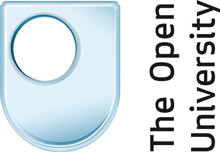Wednesday, August 18. 2010

Open Research Online:
A self-archiving success story.
Smith, Colin; Yates, Christopher and Chudasama, Sheila (2010)
5th International Conference on Open Repositories 6-9 July 2010, Madrid, Spain.
Colin Smith [CS] et al:
"...Much debate exists in the literature, on listservs, and in the blogosphere as to whether a successful and sustainable repository can be achieved solely through advocacy, management, and development, or whether this is only likely to happen if an institutional mandate is introduced. A much quoted figure is that a non-mandated repository is only likely to capture around 15% of its institution's research output, and at the very most (for an Incentivised Repository) 30% (Harnad, 2009).
"In this poster, we use the example of Open Research Online - the research repository of the Open University - to show that dedicated management and active development and advocacy of an institutional repository can lead to very successful results under the self-archiving model, in this case capturing regularly an estimated 60% of peer-reviewed journal output. Also demonstrated is the significant rise in full text (i.e. fully open access) items in the repository since the implementation of this approach."
Note Added:
"To clarify [for Andrew Adams]... it is not 60% of the estimated refereed journal output of the OU that is deposited in full text format; a proportion is metadata-only items. Looking at my data over the last year, the split is around 56/44 (full text/metadata-only)."
SH:
Is that 34% [56% x 60%] of OU's yearly research article output? How did you do that estimate? (We used Thompson/Reuters Web of Science data to estimate staff annual article output.) CS:
"I look at it monthly based on Web of Science (WoS) data only (one month and six months after being indexed by WoS), but then I look at it on an annual basis based on WoS and Scopus data combined. I carry out the monthly check manually (i.e. by subscribing to WoS alerts and checking if they've been included in ORO), but for the annual analysis I got my developer to write a script which cross-checks DOIs and paper titles from de-duplicated WoS and Scopus data.
"In case it wasn't clear, the poster was not about saying that mandates aren't needed. It was more about demonstrating that if you have to hang around waiting for one to be implemented, or if you are at an institution where your superiors are against introducing one, encouraging results can still be achieved". SH:
 Would you be willing to give me permission to post it, along with your response, above? -- Of course, what would be even more helpful would be if I could also add a passage in your own words about what needs to be done at an institution that does not yet have a mandate, in order to achieve a deposit rate as good as OU's [56% x 60% = 34%]. It would give institutions and IR managers something concrete to do while they are trying to get a deposit mandate adopted! CS:
"Ok, here are a few thoughts...
On the advocacy front, I would say giving people actual real-world examples/demonstrations of the benefits of green OA. If you know you are talking to, say, the Biology Department about the repository, prepare in advance some impressive Google searches featuring some journal articles already deposited by Biologists from your institution. I normally give them two scenarios to think about:
"(1) Imagine an academic who knows the title of the paper she wants to read... she's tried her Library and found her institution doesn't subscribe to the journal... so she plugs it into Google... hey presto, there it is, in the top 10 hits, in our repository... now she clicks through... wonderful, the full text is available... she goes on to cite the paper... as might many other people from around the world who find the paper in a similar way, and so on...
"(2) Imagine an academic conducting a general literature research... most turn straight to Google these days... they plug in "spinal cord repair research" [or whatever search you have prepared in advance]... and there you go, a paper from your department in the repository in the top 10 Google hits, and so on.
"Demonstrating the power of the repository leaves a lasting memory in the minds of the people you are addressing, rather than just a bunch of woolly statements that send your audience to sleep.
"The other thing is what I call "individual advocacy", which basically means taking the time to communicate and educate individuals at your institution about open access, copyright etc., rather than relying solely on getting yourself on the bill of department or research meetings. No one likes being in meetings, and so having to spend another half an hour listening to someone from the Library bang on about the repository doesn't always work, unless you capture their attention with good examples, as mentioned above. However, keeping an eye on what's being published by your institution, and then getting in touch with an academic and talking to them about the research their group is working on... and have they thought about where they are going to publish... and do they know what rights they retain when publishing in that journal... and have they thought about open access etc. etc., I find tends to get you results. And then, of course, when you start to make some inroads in this way, the message spreads outwards from there.
"Moving away from advocacy, I think it's really important to have a technical developer onboard, or at least access to one that can make the improvements to the repository you as the manager want and know your academic community needs. As part of this, embedding data feeds from the repository in as many other institutional systems as possible across campus is a real winner. For example, one of our faculties is currently rebuilding its entire website and, in the process, is using data from the repository to build publications lists for its staff and research groups. So, if academics in this faculty do not keep the repository up to date, then the publication lists in their staff pages and research group pages on their faculty web pages will also be out of date.
"I could go on, but I imagine this is enough for you..." -- Colin Smith
Monday, August 9. 2010
In "How much does a COPE-compliant open-access fund cost?", Stuart Shieber, the architect of Harvard's historic faculty consensus on mandating Green Open Access Self-Archiving, has explained that the purpose of the "Compact for Open Access Publishing Equity" (COPE) commitment of funds to pay Gold OA publishing costs is (1) to provide a "safety net" for publishers, that (2) COPE does not fund hybrid Gold or (3) double-dipping, and that (4) the amount of money involved is trivial. Stuart accordingly asks that "harangues [in particular from me!] about open-access funds amounting to throwing away large quantities of valuable dollars [should] please stop now."
 For what it’s worth, my objections to COPE are not based on double-dipping, nor on the amount committed; they are not even based on COPE per se. They are based on committing to COPE without first committing to mandating Green OA.
It is good that COPE does not propose to fund hybrid Gold (where the journal continues to get paid for subscriptions, and also gets paid for those articles that pay extra to be made OA). That’s double-dipping — though the publishers can (and some do) reply (in words to the effect) that: “No, it’s not double-dipping, it’s just a safety net, in case the market ever swings toward Gold: For now, we will reduce our subscriptions proportionately, to reflect any Gold OA revenues. If and when the transition is complete, it’s complete: all revenues come from Gold OA fees, zero from subscriptions. Never any double-dipping.” [not a real quote]
A safety net to preserve current revenue streams, regardless of their source.
No, the ones who are double-dripping (sic) are the institutions, who are spending money on buying in subscriptions, and -- whether they pay for hybrid Gold or pure-gold COPE journals (e.g., in the Springer/BMC “ Membership" Deal) -- also spending money on Gold (scarce money, reputedly, given the years of agonizing over the serials crisis and journal price inflation).
But even that would not matter, if the institutions were just to mandate Green OA first.
But committing to paying for Gold OA of any description without first mandating Green OA strikes me as a real head-shaker. (Of the eight universities Stuart lists as having committed to pay [something] for Gold OA, only two -- Harvard and MIT -- have mandated Green OA.)
What we need today is OA, not safety nets for publishers. Green OA mandates will bring us OA: 100% OA. Instead fiddling pre-emptively with the future of publishing will not.
Stuart has made such a brilliant, unique contribution to OA in orchestrating Harvard’s historic Green OA mandate. I continue to feel perplexed as to to why he is squandering any of his considerable expertise and influence at this critical juncture on persuading universities to squander their scarce resources (no matter how minimally) on pre-emptive Gold (as a publishers’ safety net) without first persuading them to follow his own gloriously Green example first (which was to mandate Green OA first, and then commit to spending some money on Gold OA).
Upon reflection, I remember that Stuart has actually given a hint of why he has become so preoccupied with Gold: Because one of the obstacles he had encountered in convincing faculty to vote-in a Green OA mandate by consensus, as Harvard FAS did, was (some) authors’ worries about publishers’ future.
So maybe the preoccupation with creating a safety net for publishers is really for the (sense of) safety of authors, so they are more likely to vote-in a Green OA mandate by consensus?
But the Harvard FAS’s historic consensus on Green OA came before any commitment to a Gold safety net. And the same is true of the over 150 other Green OA mandates worldwide to date (though most were adopted by presidential or provostial wisdom, rather than waiting for faculty to come to any consensus).
Wouldn’t a less costly and circuitous way of calming individuals’ concerns about the safety of publishers under Green OA mandates be to point out that if subscription publishing were ever caused to become unsustainable because of the availability of Green OA, the vast sums of money that institutions are now spending on subscriptions would then by the very same token be released as the “safety net” to pay for the conversion to Gold OA?
Does the first step really have to be pre-emptive payment, even token payment, rather than just going ahead and mandating the Green and letting the future of publishing take care of itself -- while the research community takes care of getting its research into the hands of all its intended users at long last, instead of just those whose institutions can afford a subscription?
Stevan Harnad
American Scientist Open Access Forum
Wednesday, August 4. 2010
  Houghton, John (with Bruce Rasmussen and Peter Sheehan) (2010) Economic and Social Returns on Investment in Open Archiving Publicly Funded Research Outputs. SPARC study Houghton, John (with Bruce Rasmussen and Peter Sheehan) (2010) Economic and Social Returns on Investment in Open Archiving Publicly Funded Research Outputs. SPARC study. "Preliminary modeling suggests that over a transitional period of 30 years from implementation, the potential incremental benefits of the proposed FRPAA archiving mandate might be worth around 8 times the costs. Perhaps two-thirds of these benefits would accrue within the US, with the remainder spilling over to other countries. Hence, the US national benefits arising from the proposed FRPAA archiving mandate might be of the order of 5 times the costs."
This new Houghton Report from SPARC is especially timely, counterbalancing its cautious empirical evidence against the data-free rhetoric of those publishers who are trying to kill the FRPAA and end President Obama's Request for Information on Public Access Policy by arguing that the purpose of funding, conducting and publishing research is to maximize publishers' revenues rather than to maximize the benefits of research to the tax-paying public that funded it:

Drawing by Judith Economos
Feel free to re-use to promote FRPAA and OA.

  Apart from offering to sell its authors immediate (gold) Open Access publishing for an extra fee, Nature Publishing Group (NPG) continues to embargo (green) Open Access self-archiving by its authors until 6 months after publication.
Yet in its promotional press release, NPG writes of itself: "Our liberal self-archiving policy and free manuscript deposition service remain an important part of our open access offering and service to authors." From NPG's License to Publish [ emphasis added]: "When a manuscript is accepted for publication in an NPG journal, authors are encouraged to submit the author's version of the accepted paper (the unedited manuscript) to PubMedCentral or other appropriate funding body's archive, for public release six months after publication. In addition, authors are encouraged to archive this version of the manuscript in their institution's repositories and, if they wish, on their personal websites, also six months after the original publication.
"NPG recognizes the balance of rights held by publishers, authors, their institutions and their funders (Zwolle principles, 2002), and has been a progressive and active participant in debates about access to the literature. In 2002, NPG was one of the first publishers to allow authors to post their contributions on their personal websites, by requesting an exclusive licence to publish, rather than requiring authors to transfer copyright. NPG actively supports the self-archiving process, and continues to work with authors, readers, subscribers and site-license holders to develop its policy." Yes, NPG was indeed in 2002 among the first publishers to request an exclusive license to publish instead of requiring a copyright transfer from its authors.
But what did that mean?
That new policy was at first clouded in uncertainty as to whether or not it meant that NPG was endorsing immediate, unembargoed author self-archiving of the author's final, refereed, accepted draft (green OA).
Then in January 2003 NPG indicated that it did indeed endorse immediate, unembargoed author self-archiving of the author's final draft (green OA), as over 60% of journals (including almost all the top journals -- including, notably -- Nature's rival, Science) have likewise done since.
But then in January 2005 NPG back-slid, imposing a 6-month embargo on self-archiving (and instead liberally offered to help ensure that the self-archiving was not done by NPG authors any earlier than 6 months after publication, by offering its authors a free "Manuscript Deposition Service" to take the self-archiving entirely out of the hands of its authors, with NPG doing the self-archiving in their place, for free -- after the embargo!). For authors who nevertheless desired immediate OA for their papers, some NPG journals went on to offer the option of paying NPG about $ 3000-$5000 (over and above all the subscriptions already generously paying OA for publication) for immediate (hybrid gold) OA.
That means NPG is today among the minority of journals (and the even tinier minority of the top journals) not to endorse immediate OA self-archiving.
If NPG wishes to promote itself as "liberal on OA," it needs to drop its embargo on green OA, like the rest of the majority of journal publishers that are genuinely on the side of the angels in their policy on green OA (such as APS, IOP, APA, ACS, the Royal Society, Springer and Elsevier).
If not, then NPG's embargo on green OA, its paid gold OA option, and its "liberal" willingness to take the chore of self-archiving out of the author's hands is more accurately construed as a marketing strategy to restrict green OA and increase extra revenues from selling gold OA in its place.
Stevan Harnad
American Scientist Open Access Forum
Tuesday, August 3. 2010
  Let me precede this one-line comment by first asking a question (to which I fervently hope the answer will prove to be Yes rather than No): Question: Before adopting its University of Florida Open Access Publishing (UFOAP) Fund Pilot Project in July 2010, did UF adopt the open access self-archiving mandate proposed by UF's long-time OA advocate, Tom Walker, way back in April 2009? Comment: For if not, then UF is making a substantial strategic error, squandering scarce funds to pay for a little more OA for some of UF's research output, instead of first providing OA, at no extra cost, to all of UF's research output.
April 2009: Minutes of University of Florida Infrastructure Council (283 JWRU @ 1-2pm)
Presentation & discussion: Open Access (Dr. Tom Walker) Dr. Walker provided a Powerpoint presentation on the value and benefits of open access. Guests provided additional background on how the libraries are using, creating and promoting open access. This presentation is a great start for opening discussions on Open Access at UF.
Dr. Walker will be talking to the University Libraries Committee on Friday (4/17/09). IC is not prepared at this time to write/accept a resolution but Jane will meet with Rae (ULC) and together they will go to the Steering Committee to move the discussion of OA forward.
July 2010: UF Open Access Publishing Fund Beginning July 1, 2010 the University of Florida Open Access Publishing (UFOAP) Fund Pilot Project will help with processing fees to publish open access articles. Any UF faculty, post-doctoral researcher, staff or student author may request up to $3,000 per year to pay for article-processing fees. Articles must be peer-reviewed.
Never Pay Pre-Emptively For Gold OA Before First Mandating Green OA
On Not Putting The Gold OA-Payment Cart Before The Green OA-Provision Horse
Why It Is Not Enough Just To Give Green OA Higher Weight Than Gold OA
Stevan Harnad
American Scientist Open Access Forum
|


 For what it’s worth,
For what it’s worth, 




